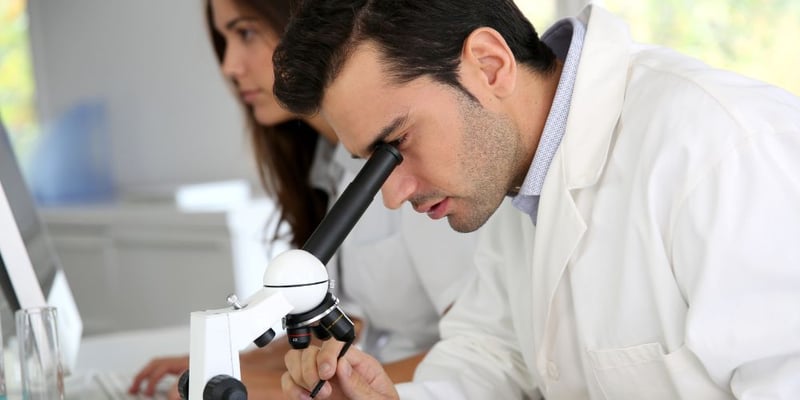
Cancer researchers from Johns Hopkins have concluded that some patients may develop colon cancer due to two specific digestive bacterias that form a film on the colon.
The two bacteria the doctors found working together to heighten cancer are known as Bacteroides fragilis and Escherichia coli (or E. coli). The B. fragilis strain, called ETBF, appears to cause inflammation in the colon, while the E. coli strain causes DNA mutations.
What Does This Mean for the Development of Colon Cancer?
Knowing that the presence of both of these bacteria may put someone at a higher risk of developing colon cancer makes it possible to screen earlier and monitor those who are found to have them in their digestive tract. Determining whether both of these bacteria are present may require only a simple and painless stool test.
According to the study paper, which was published in December 2015 in Science magazine, these two types of bacteria invade the protective mucous layer of the colon and create a small ecosystem, including nutrients the bacteria need to survive, causing chronic inflammation and subsequent DNA damage that supports tumor formation. These findings also seem to add to the growing evidence that gut bacteria are more influential on our immune system than we may realize.
Additionally, the bacteria was linked to patients without a family history of colon cancer. Cancers such as these— where there is no genetic tie — are known as sporadic cancers. Only 5-10% of colorectal cancer cancers are considered heredity, meaning the remaining 90-95% are considered sporadic.
Better Strategies to Reduce the Risk of Colon Cancer
While it’s impossible to completely eliminate these bacteria, there are things you can do to reduce the likelihood that this combination of bacteria will grow in your colon. Two strategies that may help reduce the risk of developing colon cancer in the future may include:
- Targeted antibiotics and probiotics. Both of these are two possibilities that could be beneficial in promoting healthy bacteria to chase away the harmful bacteria in the colon. Since antibiotics can damage both good and bad bacteria, taking a probiotic with them can help replenish the good bacteria and restore balance to your system. Probiotics can also be taken even if you are not taking an antibiotic. It is always best to talk with a qualified professional before adding a probiotic to your regimen.
- Eating a diet rich with gut healing properties. Certain foods can be helpful in reducing the risk of colon cancer and other types of cancers as well. Gut-healing foods typically fall under two categories: probiotic foods and prebiotic foods.
- Probiotic foods - contain live bacteria, and include foods such as plain, low-fat yogurt (preferably organic), kefir (a yogurt-like drink), kombucha tea, and fermented vegetables like sauerkraut and kimchi.
- Prebiotic foods - Feed the bacteria in your gut so they can grow and repopulate. Include whole grains, oatmeal, soybeans, garlic, fruits, and vegetables (specifically bananas, onions, and asparagus).
Screening for Colorectal Cancer
Currently, colonoscopies are the standard of care for monitoring the formation of precancerous tumors called polyps. According to the study, however, adding an at-home stool analysis to the screening process could provide an opportunity for an earlier and less-invasive way to intervene before the bacteria take over the colon. Although this isn’t a cure, it will make an impact on how colon cancer is detected.
Read our blog to learn more about at-home testing and colonoscopies for detecting colorectal cancer.
At this time, colon cancer can’t be prevented. There are, however, things you can do to help lower your risk. Read our blog about colorectal cancer risk factors, who is at risk, and steps that can be taken to reduce the risk of developing colorectal cancer.
If you have any concerns or are experiencing symptoms of colon and rectal cancers, please visit your doctor for a colon cancer screening. If you are in the Portland-Vancouver area, there are many resources nearby for you to access colonoscopies. The Colon Cancer Coalition provides a tool that allows you to find a screening location near you.


